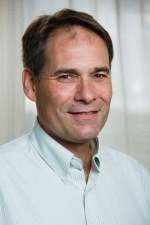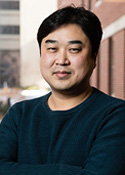 Elizabeth Allen, PhD, MPH
Elizabeth Allen, PhD, MPH
Post-Doctoral Associate
University of Minnesota
What was your educational and relevant work experience prior to enrolling in the OEE program?
I was a research coordinator in the Division of Pulmonology and Critical Care Medicine while pursuing a MPH from the University of Minnesota. I also worked as a student paraprofessional at the Minnesota Department of Health in the foodborne disease surveillance unit. I then started my PhD while working as a research assistant in the Division of Environmental Health Sciences before enrolling in the OEE program.
What made you interested in the field of occupational and environmental epidemiology?
I was very interested in epidemiological methods and wanted to pursue a field that was rigorous, interesting, and that would expose me to a wide range of topics. Occupational and environmental epidemiology was a great field to learn about exposures and population characteristics that affect health, in addition to advanced statistical and epidemiological methods.
What made you choose the University of Minnesota?
I was very interested in public health issues and epidemiology methods. The University of Minnesota School Of Public Health Division of Environmental Health Sciences offered a flexible program in which I could explore my public health interests with the diverse courses the school offers as well as pursue a course load heavy in epidemiology and statistical analysis. I was attracted to the programs’ flexibility and the diversity of the courses, the students, and the faculty research.
What type of job would you like to find upon completion of the program? If you have already commenced a position, please elaborate upon that.
I am currently a post-doctoral associate in the Cancer-Related Health Disparities Education and Career Development Program at the University of Minnesota. I’d like to pursue a career in academic research with a particular focus on vulnerable populations. The OEE program provided me with such range of experience that I am able to apply knowledge and skills gained working in occupational epidemiology in the field of health disparities research.
What would you say to a student considering the program?
The faculty are incredibly helpful, the research interests are diverse and, overall, this is a fantastic group to be a part of. Throughout the program I felt like I was supported, respected, given opportunities to advance my skills, and exposed to a variety of research topics. The program prepared me for a research career and could be applied to many public health fields.

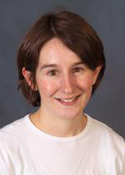 Christine Lambert, PhD
Christine Lambert, PhD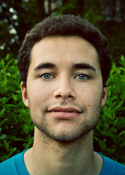 Austin Bell
Austin Bell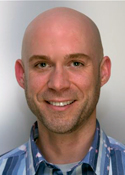 Craig S. Meyer, PhD
Craig S. Meyer, PhD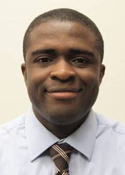 Nnaemeka Odo, PhD
Nnaemeka Odo, PhD